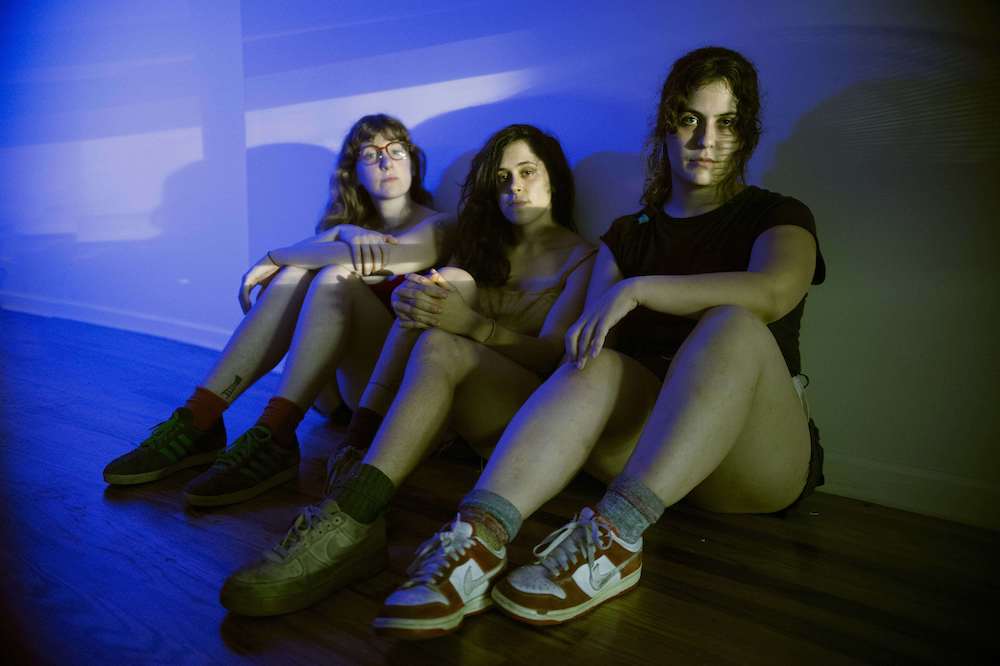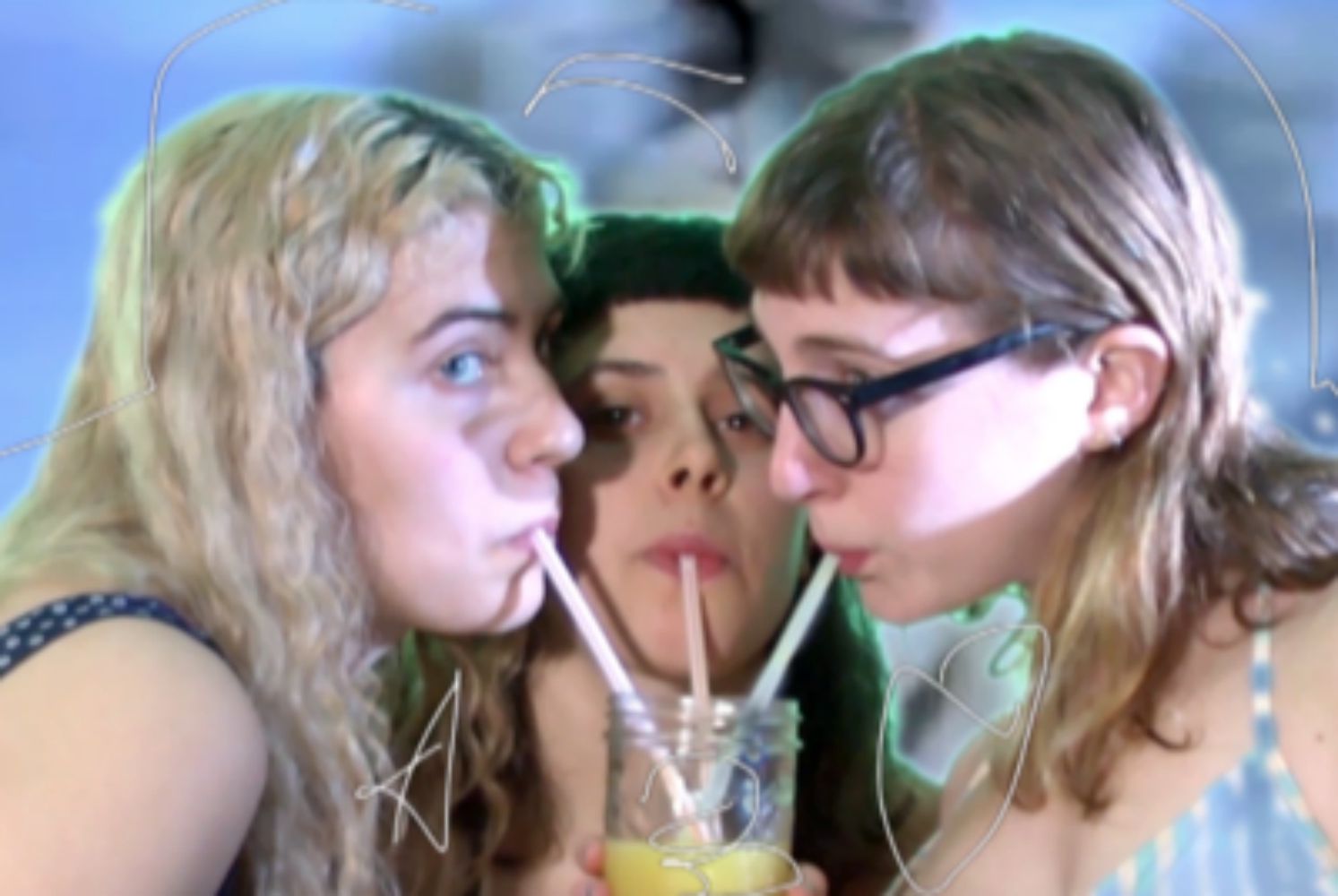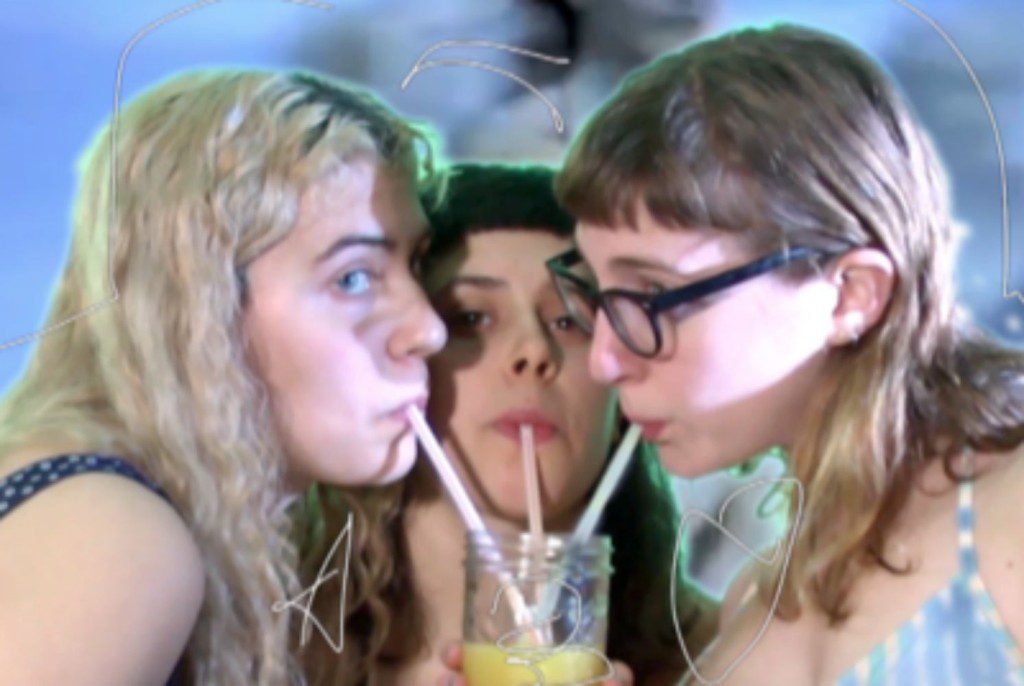Palberta Play With Fiction, Animals, and Repetition on Poppy New LP Palberta5000


Nina Ryser, Ani Ivry-Block and Lily Konigsberg don’t take themselves too seriously, and that’s what makes their band, Palberta, so much fun to listen to. The NYC-based indie rock outfit’s fifth studio album Palberta5000, like much of their previous work, is disjointed, chaotic, and sometimes disorienting – in the best way possible.
The album features the kind of lo-fi sound you’d imagine emanating from a Brooklyn warehouse show, with songs inspired by the relationship between the members, both as bandmates and as friends. The song “Before I Got Here,” for instance, mimics an argument between two people, then settles into soothing instrumentals, conveying that “you made it, you communicated, and now you’re still friends,” Konigsberg explains.
“We’re three women, and groups of three are really hard,” she says. “We had to figure out how to spend a lot of time together on the road and make music together without talking over each other or anyone feeling left out, and we have grown a lot in accepting and working through our issues. I feel like that made the music clearer because we can write together more easily.”
In a larger sense, the album deals with connection and community, something that’s become elusive to many in recent times. In “Corner Store,” they sing in discordant vocal tracks about meeting up with your friends at a local bodega, adding a fictional storyline about seeing someone they know on the cover of the newspaper.
The line between reality and nonsense is blurred throughout the album, where the band used animals as plot devices just for the fun of it. On “Cow,” they build a story around the act of taking home a bovine buddy, and in “Red Antz,” they describe running over the insects on a drive. “We’re oftentimes singing about feelings that are there, but maybe fictional scenarios that kind of bring about those feelings that maybe someone could relate to,” says Ivry-Block.
“We use absurdist combinations of words, and then they come to take on meaning when we put them together and process them,” Konigsberg adds. “There was really no reason to include so many animals. It was a surprise to all of us.”
Palberta’s songs are notoriously short — the 22 tracks on their last album, 2018’s Roach Going Down, are all under three minutes — and with this album, they set out to make them longer. “People always gave us grief about how short our songs are, and said it would be cool if we could go for longer, and I wanted to see if that was true,” says Ivry-Block. They succeeded: Two of the songs, the heavy, staccato “Fragile Place” and the harmony-driven “All Over My Face,” are nearly five minutes.
To lengthen the songs, the band experimented with repeating lyrics and melodies. “We write parts that sound kind of crazy, but if they’re repetitive, they’re less so,” says Ivry-Block. “If you hear it more than once, it becomes normal.” For the entire second half of “Big Bad Want,” for instance, the phrase “yeah, I can’t pretend what I want” repeats again and again in a way that’s a bit maddening yet pleasantly hypnotic.
Palberta5000 was also more heavily produced than the band’s past albums, giving it a poppier sound, which they were already inclined to incorporate. “We were all just way more interested in pop music at that current moment,” says Konigsberg. “Listening to it, being better at our instruments, being in a professional recording studio, and having a better vocal mic sound all led to a more poppy album.”
Palberta has been around for seven and a half years, the members having first met while they were students at Bard College. The origin of the band’s name, like much of its music, is fairly random: they’re all fans of their dads, so they were going through their dads’ names, and a friend of Konigsberg’s who was staying with her had a dad named Albert. They decided to feminize it and added the “p” as a play on words signifying their friendship. “People think we’re from Canada,” says Konigsberg, even though the existence of the Canadian province didn’t even register in their minds at the time.
Ivry-Block hopes that when people listen to Palberta, they feel inspired to make music also. “We all come from really different musical backgrounds, and we kind of came together to make very specific music,” she says. “I just believe in my heart [that] anyone is capable of making music, and we’ve just got to go for it. We hope it inspires everyone, even if you don’t have any experience. You can do it.”
Follow Palberta on Facebook and Instagram for ongoing updates.






